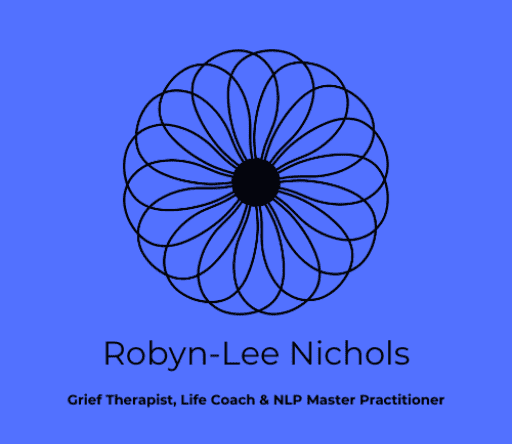Grief and Goals: The Existential Crisis of Lost Dreams
Grief and Goals, and missing the mark on our goals in particular, may lead to an existential crisis for those in the eye of the storm.
When we think of grief, our minds often turn to the profound sadness that follows the death of a loved one.
However, the emotional landscape of loss extends beyond bereavement, reaching into the territory of unrealized dreams and unmet aspirations. While these experiences differ in magnitude and nature, they share surprising psychological parallels that can help us better understand our responses to various forms of loss.
The Anatomy of ‘Traditional’ Grief
Traditional grief, typically associated with the death of a loved one, follows well-documented patterns.
Elisabeth Kübler-Ross’s stages of grief—denial, anger, bargaining, depression, and acceptance—have become a framework for understanding this journey. While these stages aren’t strictly linear, they represent common emotional territories that mourners traverse. Much like grief and goals.
When someone dies, we lose not only their physical presence but also the future we imagined with them. We grieve for conversations that will never happen, moments that can’t be shared, and the role they played in our life’s narrative.
This loss is absolute and irreversible, making the grieving process particularly challenging.
The Hidden Grief of Lost Dreams
When we invest ourselves deeply in a goal—whether it’s a career aspiration, academic achievement, romantic relationship, or a personal project—we create an emotional attachment to a potential future. When that future dissolves, we experience what might be called “ambition grief” or “goal grief.” While society may not recognize this as traditional grieving, the emotional impact can be profound, and lasting.
Grief and goals, are linked because we have inherent core values and when our goals are lost, or what seems like lost, grief will take hold.
Consider the swimmer who trains for years but misses Olympic qualification, the entrepreneur whose business fails despite tireless effort, or the writer whose manuscript faces repeated rejection.
These individuals aren’t just dealing with disappointment; they’re mourning the loss of an imagined future self. For them grief and goals is a landscape that needs self-awareness.
Parallel Emotional Patterns
Interestingly, grief and goals and goal-related loss often mirrors traditional grief in several ways:
- Denial and Shock
In bereavement: “This can’t be happening.”
In goal loss: “There must be some mistake.” “If I just try one more time…” - Anger and Frustration
In bereavement: Anger at fate, doctors, or even the deceased
In goal loss: Anger at circumstances, others, or oneself - Bargaining
In bereavement: “If only I had insisted on that medical check-up…”
In goal loss: “Maybe if I had worked just a few more hours…” - Depression
In bereavement: Deep sadness and withdrawal
In goal loss: Loss of motivation and questioning of self-worth - Acceptance
In bereavement: Finding ways to move forward while honoring the loss
In goal loss: Redefining success or discovering new directions
Key Differences and Nuances
Despite these parallels, important distinctions exist.
Grief and Goals -related loss often carries a unique burden of personal responsibility. While death rarely results from personal failure, unmet goals can trigger intense self-blame and questioning of one’s abilities or worth.
This self-directed negativity can complicate the healing process, and also have an adverse impact on future prospects.
Additionally, goal-related loss may offer opportunities for redemption or second chances that bereavement cannot. This possibility can be both comforting and challenging, as it may prevent clean closure and keep hope—sometimes unrealistically—alive.
The Healing Journey
Any form of grief requires acknowledgment, processing and time for it to be witnessed. Society readily accepts and supports traditional grieving, but grief and goals often goes unrecognized or is dismissed with well-meaning but unhelpful phrases like “better luck next time” or “everything happens for a reason.”
Losing a job, for example, especially when that person is the bread-winner not only impacts that person, but the other people who are dependent on their support. This further impacts healing, in fact, in many cases exacerbating feelings of despair and hopelessness. Grief and goals are intrinsically aligned.
Grief and goals is most certainly a far-reaching form of grief.
Understanding that goal-related disappointment can trigger genuine grief responses helps validate these feelings and supports healthier coping strategies. This recognition allows individuals to:
- Give themselves permission to feel deeply
- Seek appropriate support
- Take time to process the loss
- Learn from the experience without self-condemnation
- Gradually rebuild their sense of possibility
- Prepare for next steps meaningfully and purposefully
- Rebuilding courage to take on other opportunities that will present themselves.
- Making decisions for the best of all concerned.
The Way Forward
Grief and goals lost, is a reality and many will be suffering in times of economic downturns.
Whether mourning a loved one or a lost dream, the path forward requires self-compassion, time, and often the support of others. While the intensity and duration may differ, both experiences deserve recognition and respect as genuine forms of loss that shape our human experience.
Lost goals and the grief that results from it, must be recognised as an existential crises for many who will experience it. It requires courage and foresight to endure and move forward and with support, ensuring that emotions are managed and reformulated.
By understanding these parallel but distinct grieving processes, we can better support ourselves and others through various forms of loss, acknowledging that each person’s journey through grief—whether traditional or goal-related—is uniquely their own and equally valid.






